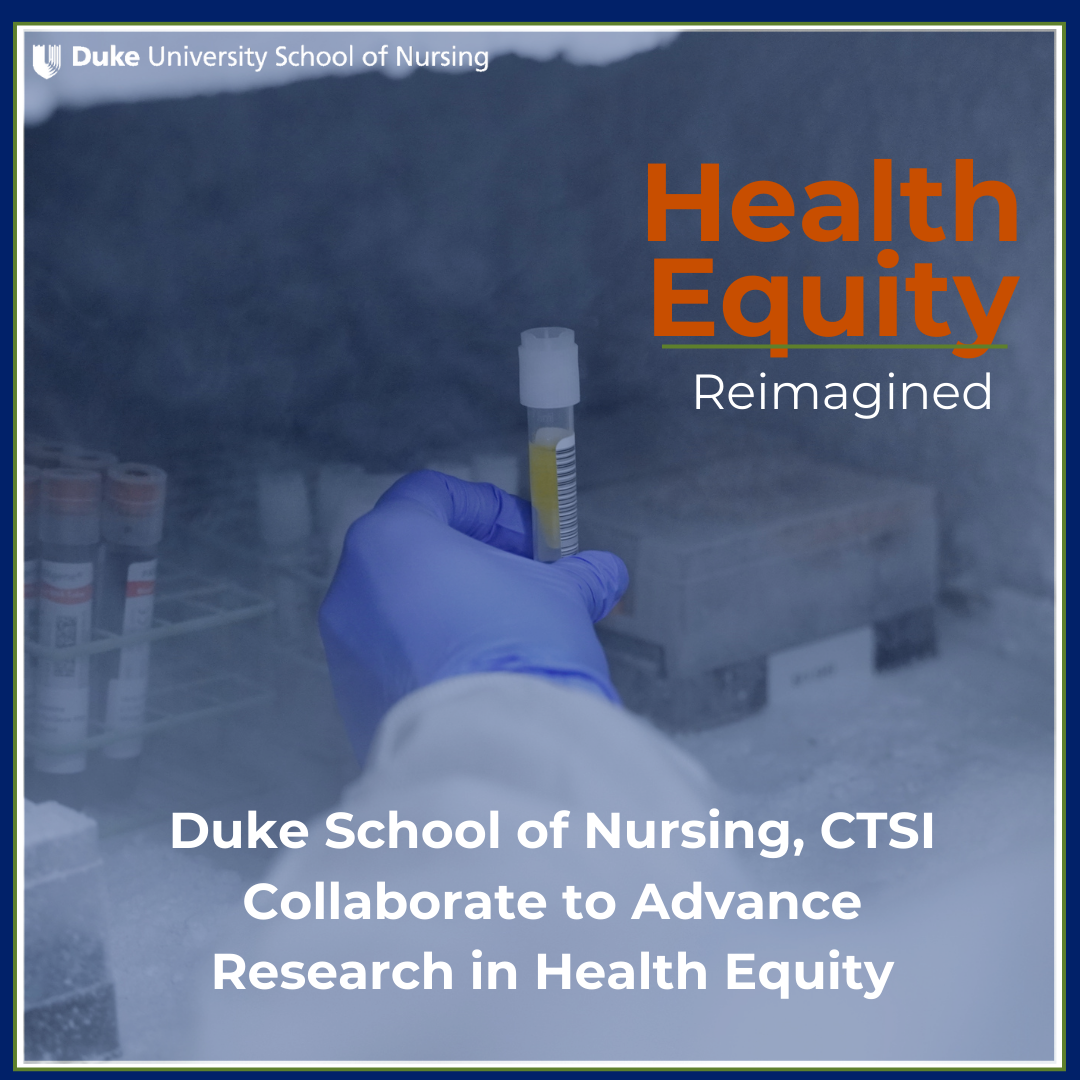Duke School of Nursing, CTSI Collaborate to Advance Research in Health Equity
Through a collaboration designed to advance research in health equity and social drivers of health, the Duke Clinical and Translational Science Institute (CTSI) and the Center for Precision Health have partnered with the Center for Nursing Research at the Duke University School of Nursing (DUSON) to bring more than 20,000 biological samples and linked data from a community-based registry at Duke Kannapolis to investigators at DUSON.

The new DUSON-MURDOCK Biorepository includes de-identified samples and associated data from nearly 12,000 racially and ethnically diverse participants in the Kannapolis Population Based Cohort, a longitudinal cohort based at CTSI’s research site in Kannapolis.
“We are thrilled to make thousands of biospecimens and associated clinical and outcome data available to the School of Nursing through this science-forward collaboration,” said Svati Shah, MD, MHS, who directs Duke Kannapolis and the Center for Precision Health. “This partnership is exactly what we envisioned when we created our biorepository initiative with the intention to share this powerful resource with more Duke collaborators.”
The Biorepository Transformation Initiative is available to all Duke researchers, who can complete this brief interest form as a first step toward accessing samples. DUSON is well and uniquely positioned to tap into this initiative to create a local biorepository to facilitate biomarker research to support their strategic priorities in health equity, social drivers of health, and nurse-led models of care.
“We are excited to test hypotheses exploring how social and contextual experiences can be embedded in our biology and thus our health. Understanding how these experiences impact health is a key piece of our strategic plan for research,” said Sharron L. Docherty, PhD, PNP, RN, FAAN, vice dean for research at DUSON. “Thanks to the sample size, diversity, and the number of chronic health conditions present across this data set, we can explore vital questions related to how the environment influences biology.”
Researchers at DUSON will use their DUSON-MURDOCK Biorepository in two relatively new areas of research: social epigenetics, or how social experiences become embodied in humans and can impact health in positive and negative ways, and social genomics, or how fixed biological traits underpin health outcomes that are influenced by social factors, such as stress.
“Duke Kannapolis will be a valuable collaborator as we explore ways to use these biospecimens to better understand how a genetic predisposition for a health outcome may be modified by social factors, and in turn, how social factors may become genetically embedded in humans, changing biological function,” said Julia K.L. Walker, PhD, director of the DUSON-Biomarker Laboratory. “The database is a remarkable resource.”
Data generated from the project will be returned to the Kannapolis database for other investigators to use for continued population-based research.
Kais Gadhoumi, PhD, assistant research professor at DUSON, will lead informatics and data management on the project. Duke Kannapolis leadership on the project includes Julie Eckstrand, RPh, executive director for scientific programs, and Douglas Wixted, MMCi, research program leader.